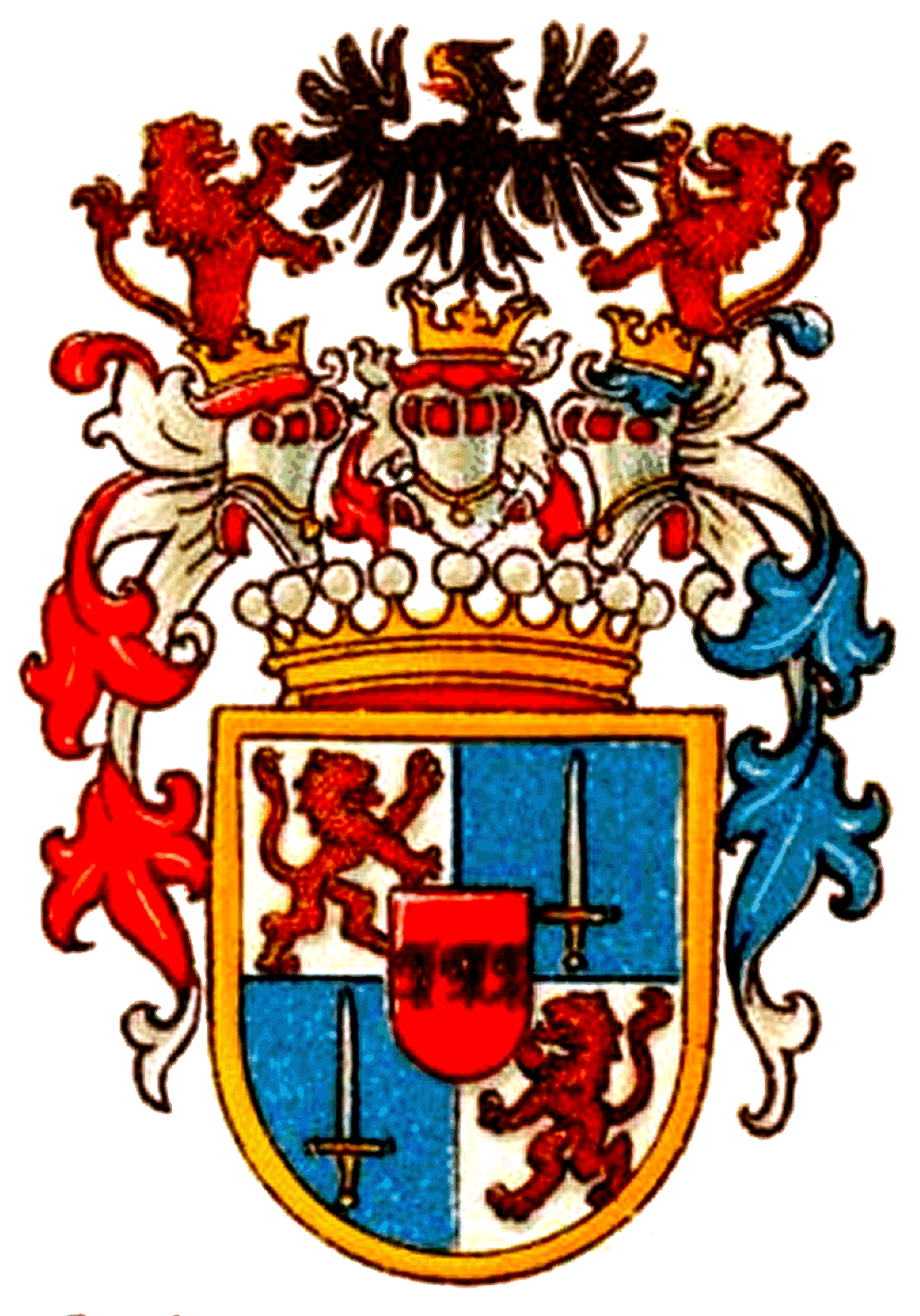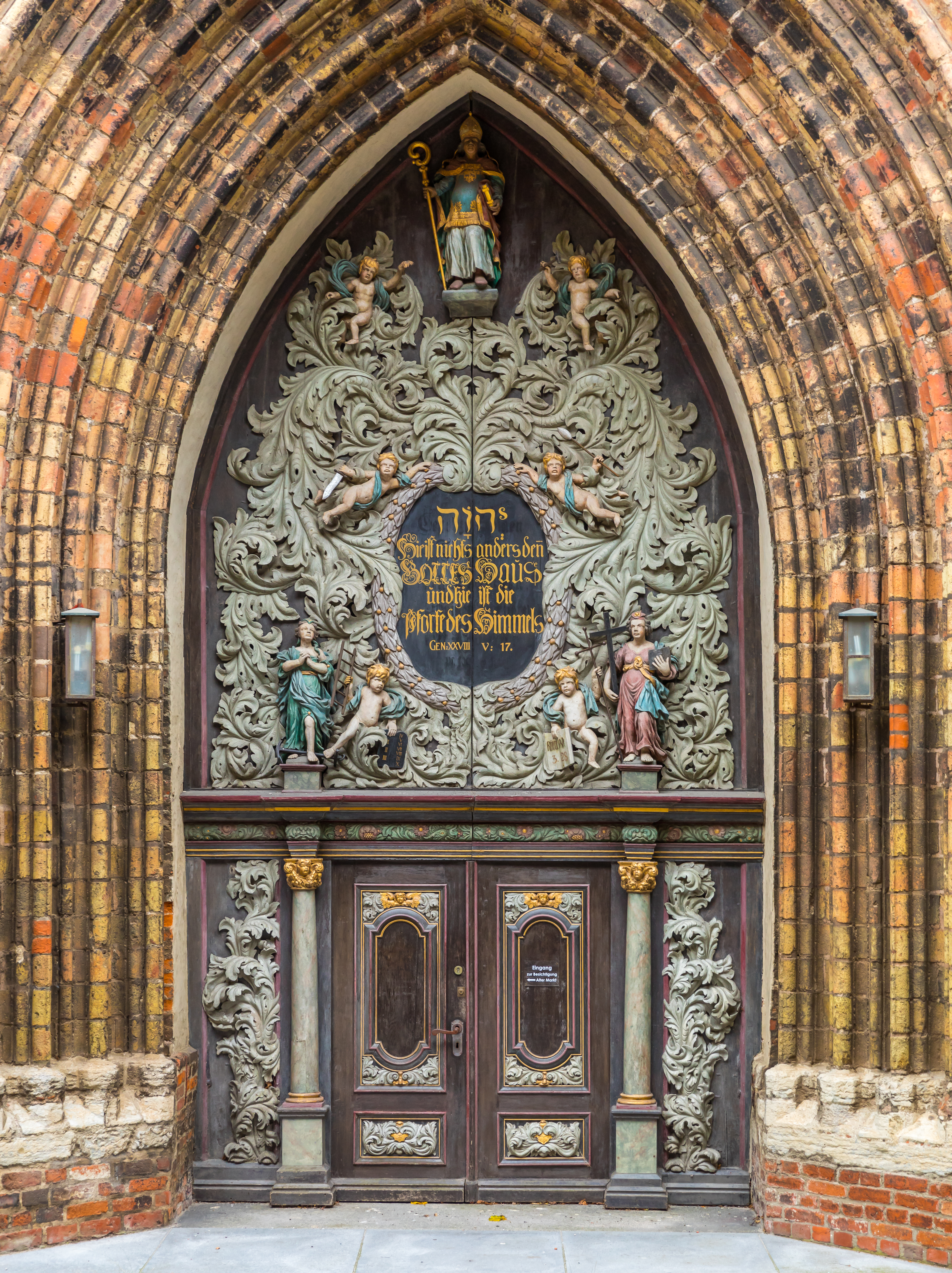|
Klinkowström
Klinkowström or Klinckowström is a German nobility, noble house of German origin with Prussian-Austrian and Swedish branches. History The family probably originated from Klinkow near Prenzlau, Germany. They held positions in the city of Stralsund, such as serving as its mayor during the 1559–1599 period. Members of the family that served in Sweden were first raised to hereditary nobility in 1678, when colonel Johann Klinckow was ennobled as "Klinckouenström". Some of their descendants moved to Prussia; was given the title of Count by Frederick William III of Prussia, King Frederick William III in 1798. Notable members * (1884–1969), German cultural and technological historian * Friedrich August von Klinkowström (1778–1835), a German artist, author and teacher ** Joseph von Klinkowström (1813–1876), an Austrian Jesuit missionary; son of Friedrich August * (1686–1750), Hanoverian lieutenant general * Hedvig Eleonora von Fersen, Hedvig Eleonora von Klinckowström, n ... [...More Info...] [...Related Items...] OR: [Wikipedia] [Google] [Baidu] |
Friedrich August Von Klinkowström
Friedrich August von Klinkowström (31 August 1778 – 4 April 1835) was a German artist, author and teacher from an old Duchy of Pomerania, Pomeranian noble family. Biography Klinkowström was born in Loissin, Ludwigsburg in Swedish Pomerania to Friedrich Ernst Sebastian von Klinkowström (1735–1821) and Anna Louise Wilhelmine von :File:POL_COA_Gruszczyński_Baron_alt.svg, Rosenberg-Gruszczyński (1751–1823). He began studying at the University of Greifswald, but, in deference to the wishes of his father, a lieutenant-colonel in the Swedish army, Friedrich served in the Prussian Army from 1793 to 1802. After this he was allowed to follow his own inclination and become a Painting, painter. To perfect himself in his studies, he went to the Gemäldegalerie Alte Meister, Dresden Gallery. His early pictures as well showed a strong leaning towards the Roman Catholic Church. After four years of successful study he was called home and obliged to remain there quietly for two ... [...More Info...] [...Related Items...] OR: [Wikipedia] [Google] [Baidu] |
Joseph Von Klinkowström
Joseph von Klinkowström (30 August 1813 – 30 March 1876) was a Jesuit missionary and by birth, member of the Prussian Klinkowström noble family. Biography Joseph was born as the eldest son of Friedrich August von Klinkowström and his wife, Friederike Louise Charlotte von Mengershausen. He received his early education at his father's school, and in 1831 entered the Jesuit novitiate in Graz. After completing his novitiate and the study of rhetoric and philosophy, he taught for three years in the lower forms of the Gymnasium. He made his theology in Rome, where he was ordained priest in 1846. On his return to Graz he taught rhetoric, and subsequently, during the confusion caused by the revolution of 1848, held the position of tutor in a noble Westphalia Westphalia (; ; ) is a region of northwestern Germany and one of the three historic parts of the state of North Rhine-Westphalia. It has an area of and 7.9 million inhabitants. The territory of the region is alm ... [...More Info...] [...Related Items...] OR: [Wikipedia] [Google] [Baidu] |
Hedvig Eleonora Von Fersen
Hedvig Eleonora "Hedda" von Fersen (2 July 1753 – 8 November 1792) was a Swedish noble and a lady in waiting to the Swedish queen, Sophia Magdalena of Denmark. She was the daughter of Axel von Fersen the Elder and Hedvig Catharina De la Gardie, and the sister of Axel von Fersen, Sophie Piper and Fabian von Fersen. In 1773, she married marshal Baron, later Count, Thure Leonard von Klinkowström in his second marriage, and with him had four children, among them were the artist Hedvig Amalia Charlotta Klinckowström and Axel Leonhard von Klinckowström, member of the Royal Swedish Academy of War Sciences and Société d'encouragement pour l'industrie nationale. Life Hedvig Eleonora was given a high education by her father and acquired a reputation as a cultivated intellectual. It was said about her that she had "the most passionate mind, surpassing perhaps all other women in Sweden, along with the strongest soul." Freemason She is known to be one of five women to have been ... [...More Info...] [...Related Items...] OR: [Wikipedia] [Google] [Baidu] |
German Nobility
The German nobility () and Royal family, royalty were status groups of the Estates of the realm, medieval society in Central Europe, which enjoyed certain Privilege (law), privileges relative to other people under the laws and customs in the German-speaking area, until the beginning of the 20th century. Historically, German entities that recognized or conferred nobility included the Holy Roman Empire (962–1806), the German Confederation (1814–1866), and the German Empire (1871–1918). Chancellor Otto von Bismarck in the German Empire had a policy of expanding his political base by ennobling nouveau riche industrialists and businessmen who had no noble ancestors. The nobility flourished during the dramatic industrialization and urbanization of Germany after 1850. Landowners modernized their estates, and oriented their business to an international market. Many younger sons were positioned in the rapidly growing national and regional civil service bureaucracies, as well as in th ... [...More Info...] [...Related Items...] OR: [Wikipedia] [Google] [Baidu] |
Prenzlau
Prenzlau (; ) is a town in Brandenburg, in north-eastern Germany, the administrative seat of Uckermark District. It is also the centre of the historic Uckermark region. Geography The town is located on the Ucker river, about north of Berlin. Prenzlau station—which opened in 1863—is a stop on the Angermünde–Stralsund railway line. History Settled since Neolithic times, the Prenzlau area from the 7th century AD was the site of several gords erected by the Polabian Slavs called Ukrani. In the late 12th century, the Dukes of Pomerania had the region colonized by Low German settlers. Prenzlau itself, named after Slavic ''Premyslaw'', was first mentioned in 1187. It received town privileges by Duke Barnim I of Pomerania in 1234. When Duke Barnim signed the Treaty of Landin with the Ascanian margraves of Brandenburg in 1250, Prenzlau was already a fortified town with walls and moats, four parish churches and a monastery. Together with Berlin-Cölln, Frankfurt and S ... [...More Info...] [...Related Items...] OR: [Wikipedia] [Google] [Baidu] |
Stralsund
Stralsund (; Swedish language, Swedish: ''Strålsund''), officially the Hanseatic League, Hanseatic City of Stralsund (German language, German: ''Hansestadt Stralsund''), is the fifth-largest city in the northeastern German federal state of Mecklenburg-Western Pomerania after Rostock, Schwerin, Neubrandenburg and Greifswald, and the second-largest city in the Pomeranian part of the state. It is located on the southern coast of the Strelasund, a Sound (geography), sound of the Baltic Sea separating the island of Rügen from the Pomeranian mainland.''Britannica Online Encyclopedia'', "Stralsund" (city), 2007, webpageEB-Stralsund The Strelasund Crossing with its two bridges and several ferry services connects Stralsund with Rügen, the largest island of Germany and Pomerania. The Western Pomeranian city is the seat of the Vorpommern-Rügen district and, together with Greifswald, Stralsund forms one of four high-level List of cities in Mecklenburg-Vorpommern, urban centres of the region ... [...More Info...] [...Related Items...] OR: [Wikipedia] [Google] [Baidu] |
Count
Count (feminine: countess) is a historical title of nobility in certain European countries, varying in relative status, generally of middling rank in the hierarchy of nobility. Pine, L. G. ''Titles: How the King Became His Majesty''. New York: Barnes & Noble, 1992. p. 73. . Especially in earlier medieval periods the term often implied not only a certain status, but also that the ''count'' had specific responsibilities or offices. The etymologically related English term " county" denoted the territories associated with some countships, but not all. The title of ''count'' is typically not used in England or English-speaking countries, and the term ''earl'' is used instead. A female holder of the title is still referred to as a ''countess'', however. Origin of the term The word ''count'' came into English from the French ', itself from Latin '—in its accusative form ''comitem''. It meant "companion" or "attendant", and as a title it indicated that someone was delegated to ... [...More Info...] [...Related Items...] OR: [Wikipedia] [Google] [Baidu] |
Frederick William III Of Prussia
Frederick William III (; 3 August 1770 – 7 June 1840) was King of Prussia from 16 November 1797 until his death in 1840. He was concurrently Elector of Brandenburg in the Holy Roman Empire until 6 August 1806, when the empire was dissolved. Frederick William III ruled Prussia during the times of the Napoleonic Wars. The king reluctantly joined the Sixth Coalition against Napoleon in the German campaign of 1813. Following Napoleon's defeat, he took part in the Congress of Vienna, which assembled to settle the political questions arising from the new, post-Napoleonic order in Europe. His primary interests were internal – the reform of Prussia's Protestant churches. He was determined to unify the Protestant churches to homogenize their liturgy, organization, and architecture. The long-term goal was to have fully centralized royal control of all the Protestant churches in the Prussian Union of Churches. The king was said to be extremely shy and indecisive. His wife Queen ... [...More Info...] [...Related Items...] OR: [Wikipedia] [Google] [Baidu] |
Low German Surnames
Low or LOW or lows, may refer to: People * Low (surname), listing people surnamed Low Places * Low, Quebec, Canada * Low, Utah, United States * Lo Wu station (MTR code LOW), Hong Kong; a rail station * Salzburg Airport (ICAO airport code: LOWS), Austria Music * Low (band), an American indie rock group from Duluth, Minnesota * Low (English band), an English duo featuring Frankie Goes to Hollywood guitarist Brian Nash Albums * ''Low'' (David Bowie album), 1977 * ''Low'' (Testament album), 1994 * ''Low'' (Low EP), 1994 Songs * "Low" (Cracker song), 1993 * "Low" (Flo Rida song), 2007 * "Low" (Foo Fighters song), 2002 * "Low" (Juicy J song), 2014 * "Low" (Kelly Clarkson song), 2003 * "Low" (Lenny Kravitz song), 2018 * "Low" (Sara Evans song), 2008 * "Low" (SZA song), 2022 * "Low", by Camp Mulla * "Low", by Coldplay from the 2005 album '' X&Y'' * "Low", by I Prevail from the 2019 album '' Trauma'' * "Low", by Inna from her 2015 self-titled album * "Low", by Marianas ... [...More Info...] [...Related Items...] OR: [Wikipedia] [Google] [Baidu] |
Pomeranian Nobility
Pomeranian is an adjective referring to the historical region of Pomerania, which is divided between Poland and Germany. Peoples and cultures * Pomeranian Balts, ancient western Baltic people * Pomeranian culture, an Iron Age culture of earlier people in land later called Pomerania * Pomeranians (Slavic tribe), a medieval West Slavic tribe * Pomeranians (German people) (Pommern), since the High Middle Ages Languages * Pomeranian language, a group of Lechitic dialects spoken by the Slavic Pomeranians of the Middle Ages * East Pomeranian dialect classified within Low German, spoken by the Pomeranians since the High Middle Ages * Central Pomeranian dialect classified within Low German, spoken by the Pomeranians since the High Middle Ages Animal breeds * Pomeranian dog, ''Spitz'' toy dog breed * Pomeranian Coarsewool sheep (also Pomeranian sheep, Pommernschaf) * Pomeranian duck (also Pommern duck, Pommernente) * Pomeranian goose (also Rügener goose, Pommerngans) * Poma ... [...More Info...] [...Related Items...] OR: [Wikipedia] [Google] [Baidu] |
Swedish Noble Families
This is a list of Swedish noble families, which are divided into two main groups: *Swedish nobility, Introduced nobility, i.e. noble families introduced at the House of Nobility (Sweden), Swedish House of Nobility *Swedish nobility#Unintroduced nobility, Unintroduced nobility, i.e. noble families which have not been introduced at the Swedish House of Nobility, mostly consisting of foreign nobility resident in Sweden, but also including some families ennobled by the Swedish monarchs and some other groups. The introduced nobility is divided into three ranks: Comital families, Baronial families and untitled noble families (in addition, members of the royal family hold ducal titles). The unintroduced nobility consists of families of princely, ducal, marquis, comital, baronial, and untitled noble rank. This group notably includes several branches of the House of Bernadotte with foreign (princely and comital) noble titles (such as Count of Wisborg). The vast majority of both introduced ... [...More Info...] [...Related Items...] OR: [Wikipedia] [Google] [Baidu] |





